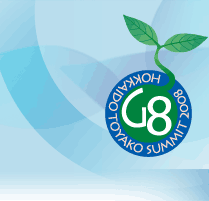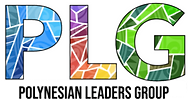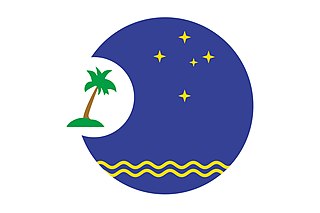
The Pacific Islands Forum (PIF) is an inter-governmental organisation that aims to enhance cooperation among countries and territories of Oceania, including formation of a trade bloc and regional peacekeeping operations. It was founded in 1971 as the South Pacific Forum (SPF), and changed its name in 1999 to "Pacific Islands Forum", so as to be more inclusive of the Forum's Oceania-spanning membership of both north and south Pacific island countries, including Australia.

Tonga, by a modification of its treaty of friendship with the United Kingdom in July 1970, is responsible for its own external affairs. It maintains cordial relations with most countries and has close relations with its Pacific neighbours and the United Kingdom. In 1998, it recognized the People's Republic of China and broke relations with Taiwan.
The Pacific Science Association (PSA) is a regional, non-governmental, scholarly organization that seeks to advance science and technology in support of sustainable development in the Pacific Rim. It was founded in 1920 and its secretariat is based at the Bishop Museum in Honolulu, United States.

The 34th G8 summit was held in the town of Tōyako, Hokkaido, Japan, on July 7–9, 2008. The locations of previous summits hosted by Japan include Tokyo and Nago, Okinawa (2000). The G8 summit has evolved beyond being a gathering of world political leaders to become an occasion for a wide variety of non-governmental organizations, activists and civic groups to congregate and discuss a multitude of issues.
The Biketawa Declaration (2000) is a declaration agreed to by all the leaders of the Pacific Islands Forum constituting a framework for coordinating response to regional crises. The declaration takes its name from the Kiribati islet of Biketawa, where the Forum Leaders met in a retreat to discuss, agree and adopt measures for collective security.

Oceania is, to the People's Republic of China and the Republic of China, a stage for continuous diplomatic competition. The PRC dictates that no state can have diplomatic relations with both the PRC and the ROC. As of 2024, eleven states in Oceania have diplomatic relations with the PRC, and three have diplomatic relations with the ROC. These numbers fluctuate as Pacific Island nations re-evaluate their foreign policies, and occasionally shift diplomatic recognition between Beijing and Taipei. The issue of which "Chinese" government to recognize has become a central theme in the elections of numerous Pacific island nations, and has led to several votes of no-confidence.

Fiji–Tonga relations are foreign relations between Fiji and Tonga. These neighbouring countries in the South Pacific have a history of bilateral relations going back several centuries.

Sir Toke Tufukia Talagi was a Niuean politician, diplomat, and statesman. He served as Premier of Niue from 2008 to 2020.
Cuban-Pacific relations are diplomatic, economic, cultural, and other relations between the Cuba and countries situated in Oceania. In the 2000s, Cuba has been strengthening its relations with Pacific nations, which have, for the most part, responded favorably to Cuban medical aid in particular. The first Cuba-Pacific Islands ministerial meeting was held in September 2008 in Havana, with government members from ten Pacific countries—Kiribati, Tuvalu, Nauru, Solomon Islands, Fiji, Tonga, Vanuatu, Samoa, the Federated States of Micronesia and Papua New Guinea—attending. The meeting was a consolidation rather than a starting point of Cuban-Pacific relations.
The Tarawa Climate Change Conference (TCCC), was held in the Republic of Kiribati from 9 to 10 November 2010. The purpose of the conference was to support the initiative of the President of Kiribati, Anote Tong, to hold a consultative forum between vulnerable states and their partners with a view of creating an enabling environment for multi-party negotiations under the auspices of the UNFCCC. The conference was the successor event to the Climate Vulnerable Forum held in November 2009 in the Maldives, when eleven climate vulnerable countries signed the Bandos Island declaration pledging to show moral leadership and commence greening their economies by voluntarily committing to achieving carbon neutrality. Based on the lessons learned in the COP process, the TCCC proposed a more inclusive format of consultations, involving key partners among major developed and developing nations.

The Polynesian Leaders Group (PLG) is an international governmental cooperation group bringing together four independent countries and eight self-governing territories in Polynesia.
The Majuro Declaration is an initiative of the Pacific Islands Forum, which was signed on 5 September 2013 at Majuro in the Marshall Islands during the 44th Pacific Islands Forum summit. At the summit the leaders of the Pacific Islands Forum nations recognised the need for strengthened national systems to plan for, access, deliver, absorb and monitor climate change and for donor countries to continue to simplify and harmonise their assessment, implementation and reporting processes for financing projects directed to climate change adaptation, mitigation and risk reduction.
The 45th Pacific Islands Forum was held from 29 July to 1 August 2014 in Palau. The forum's official opening was held in the capital Ngerulmud, in Melekeok State, but the majority of events were held in Koror, Palau's largest city and former capital. The official theme of the meeting was "The Ocean: Life & Future". Topics under discussion include climate change, commercial fishing, non-communicable diseases and the possibility of readmitting Fiji to the forum.

Forum for India–Pacific Islands Cooperation (FIPIC) is a multinational grouping developed in 2014 for cooperation between the Republic of India and 14 Pacific Islands nations which include Cook Islands, Fiji, Kiribati, Marshall Islands, Federated States of Micronesia, Nauru, Niue, Samoa, Solomon Islands, Palau, Papua New Guinea, Tonga, Tuvalu and Vanuatu. All heads of state or heads of government of the above countries met in Suva, Fiji in November 2014 for the first time where the annual summit was conceptualised.

The 51st Pacific Islands Forum was a meeting of the heads of state and heads of government of the Pacific Islands Forum (PIF), which was held in Suva, Fiji from 11 to 14 July 2022. The meeting was chaired by the Prime Minister of Fiji, Frank Banimarama.

The United States–Pacific Island Country Summit was a meeting hosted by President of the United States Joe Biden with Pacific Island leaders held on September 28–29, 2022 at the White House in Washington, D.C., which coincided with the week of the 77th session of the United Nations General Assembly.

The 49th G7 summit was held from 19 to 21 May 2023 in the city of Hiroshima in Hiroshima Prefecture.
Port Vila Call for a Just Transition to a Fossil Fuel Free Pacific is a forum intended to call for the phase-out of fossil fuels in line with the Paris Agreement’s limitation to warming being only 1.5 °C (34.7 °F) or below and the 'rapid and just transition' to renewable energy and strengthening environmental law, including introducing the criminalization of ecocide.













